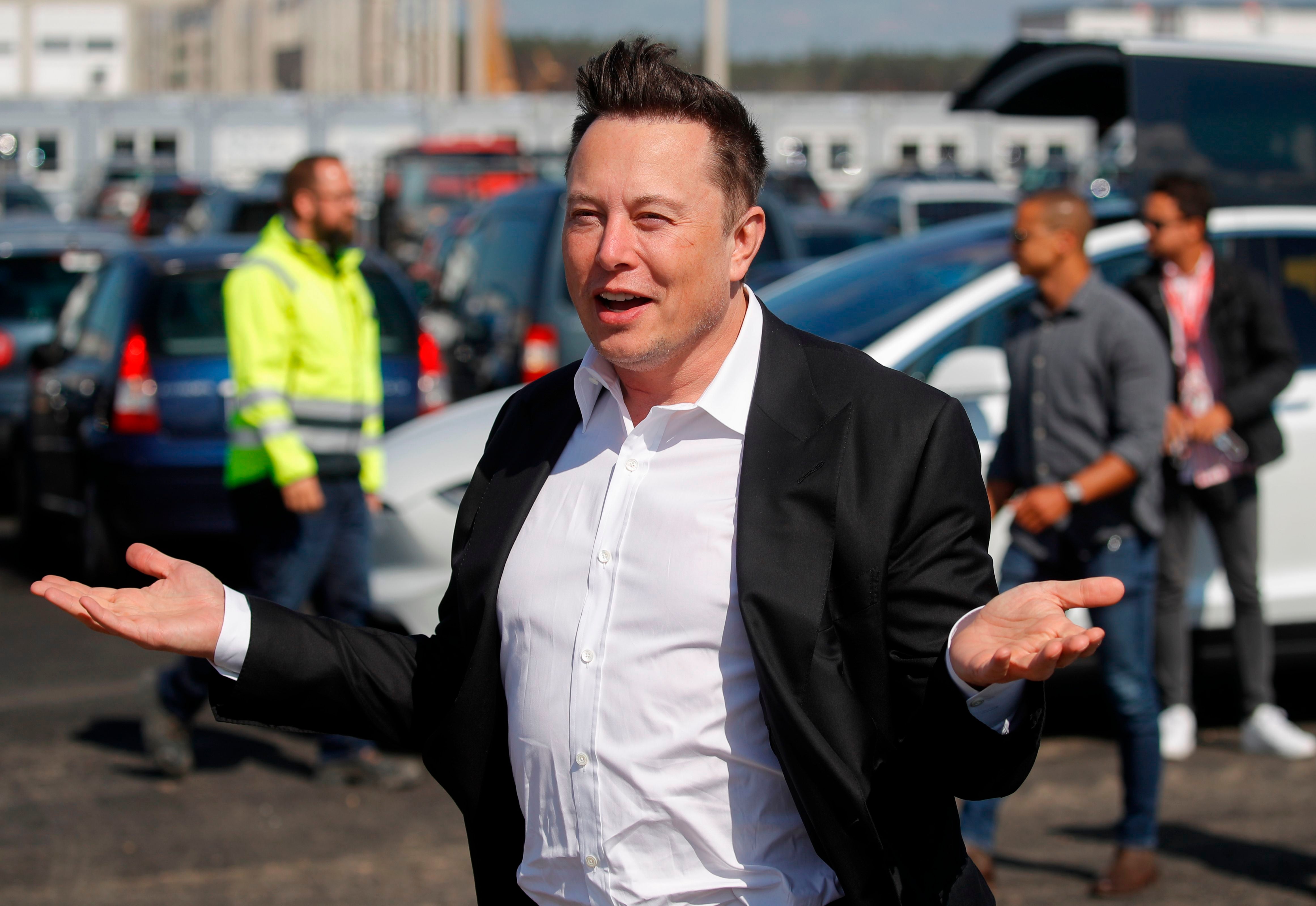Why is Elon Musk promoting cryptocurrencies – and why does it matter?
This could be Elon Musk's most outlandish – and potentially dangerous – move yet. But what are the implications? Ben Chu investigates


Elon Musk has in recent weeks (as well as becoming, at one point, the world’s richest individual thanks to his stake in the electric car company Tesla) been vigorously promoting cryptocurrencies on his Twitter account.
Some saw that as merely playful meme-heavy trolling from the eccentric Musk and of relatively little real-world importance.
But this week Musk has, apparently, involved Tesla itself in his cryptocurrency fixation.
The firm announced on Monday that it had invested $1.5bn of its spare corporate cash in a well-known cryptocurrency called Bitcoin to “diversify and maximise” the return on its reserves.
The company, valued more highly by the stock market than virtually all the rest of the world’s major car companies put together, also said it will start to accept Bitcoin as direct payment from customers for new vehicles.
So what’s going on?
First, it’s important to recognise that Musk has long been known as an erratic character, especially online.
He falsely accused a British diver who helped in the Thai cave rescue in 2018 (and who had criticised Musk's intervention) of being a “pedo”.
He’s been investigated and fined by US financial regulators for securities fraud after casually suggesting on Twitter that he was about to take Tesla off the stock market.
Only last month he helped fire up the GameStop mania.
The list goes on and on.
Yet this real-world promotion of cryptocurrencies through Tesla’s balance sheet is the most outlandish – and potentially dangerous – move yet.
Tesla’s board signed off on the Bitcoin investment, but analysts note it looks very much like a decision by the chief executive Musk.
And that has caused corporate governance alarms to ring loudly.
It’s not difficult to see why. Corporations generally park their spare cash in safe assets such as government bonds, not cryptocurrencies.
It’s not unknown for companies to buy shares in other companies, sometimes rivals. But investing such a large sum in a cryptocurrency is unheard of and immensely risky.
Despite the name, cryptocurrencies are not considered “currencies” by most economists and analysts.
This is because, with their value not underpinned by anything except the belief of their owners in their value, their price is enormously volatile.
They are not a stable store of value, not a viable medium of exchange, nor a useful unit of account, the three classic functions of a currency.
Tesla also said in its regulatory filing that the Bitcoin deal does not cover funds needed to preserve Tesla’s “operating liquidity”, meaning the cash it needs for day-to-day running costs.
But this merely reinforces the impression that this is a bet by Tesla’s founder using the company’s (or arguably shareholders’) money.
Tesla might be flush with cash today, with $19bn in cash on its balance sheet.
Almost half of that accumulated last year, as the company capitalised on the seven-fold increase in its share price in 2020 to raise $12bn of new capital from the market.
In that context a $1.5bn punt on Bitcoin might not seem so perilous.
Yet Tesla was close to bankruptcy as recently as two years ago, when its cash reserves dipped to just $2.5bn.
And the sum is also roughly similar to the amount that Tesla spent on research and development in 2019.
Is this really a prudent use of the company’s excess cash?
And, on a related point, Musk tweeting to 46 million followers and fans about the virtues of Bitcoin while secretly buying the asset is arguable grounds for an official market manipulation investigation. Is this really something that Tesla’s board should be courting?
The rally spurred by the announcement on Monday added more than $100bn to the value of all the mined Bitcoins in the world.
It seems unlikely Musk was doing this just to make a quick buck.
He might genuinely believe, as some others do, that cryptocurrencies are the future of money – and that Bitcoin and others will, in time, evolve into genuine currencies, with a steady value and widespread usage as payments.
It’s possible that he thinks a major high-profile corporate investment by a firm such as Tesla is what is needed to take cryptocurrencies into the mainstream.
His tweets on this subject have not been especially enlightening. In December he suggested that “Bitcoin is almost as bs [bullshit] as fiat money [money printed by states]”, which does not obviously imply that Bitcoin is superior.
More recently, he’s been posting memes in support of “Dogecoin” which is a cryptocurrency specifically designed as a joke, and which (unlike Bitcoin) has a limitless supply.
Musk might simply be amusing himself, by inflating a bubble, doing it because he can, and knowing that he will not be seriously financially hurt if it all collapses.
But many others who buy into Bitcoin because one of the world’s richest individuals and most celebrated business figures is promoting it are unlikely to be so financially insulated if the bubble does pop.
And many are wondering whether this kind of bizarre speculation in seemingly ever-upward spiralling markets – which encompasses both Bitcoin and shares in Tesla itself – means the cycle is in its “euphoric” stage and that the end of the party is getting closer.

Join our commenting forum
Join thought-provoking conversations, follow other Independent readers and see their replies
0Comments